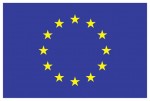This analysis identifies the patterns of disinformation, propaganda and hate speech in the media and public communication in North Macedonia. The aim was to determine their structure and characteristics, political and economic support and their impact.
The analysis identified several media models, media groups and individuals who spread disinformation, propaganda and hate speech, predominantly in the online sphere, as traditional media outlets only sporadically published such content in 2019 and 2020.
The analysis features a description of the media system and the extent to which it enables the development and existence of media models that spread disinformation, propaganda and hate speech. The organizational structure, ownership and financing of the media are explained, as well as the self-regulatory mechanisms, regulatory framework and initiatives of the civil society organizations that monitor and analyze their work.
In this regard, examples of media, media groups, individuals and other media structures that usually spread disinformation, propaganda and hate speech are presented, as well as recommendations for further dealing with these harmful practices in the media and communication sphere in North Macedonia.
Download the publication in English and in national language.
This publication was produced within Resilience: Civil Society for Media Free of Hate and Disinformation, a regional project financially supported by the European Union and implemented in the Western Balkans and Turkey by a consortium of media development organizations led by SEENPM. It is part of a series of publications on the same general topic researched in Albania, Bosnia and Herzegovina, Kosovo, Montenegro, North Macedonia, Serbia and Turkey (all publications are available on the SEENPM website).
The conclusions of the research are the following:
The reasons behind creating and spreading hate speech, disinformation and propaganda through the media in North Macedonia most often lie in the connection of the media with the political and business centres of power. The themes that “feed” these phenomena are generated by the long history of political and ethnic division of the society and are usually intensified in times of crisis or pre-election periods. Hate speech of a political and ethnic nature, as well as on grounds of sexuality and gender, is on the rise on social media networks.
The reasons behind creating and spreading hate speech, disinformation and propaganda through the media in North Macedonia most often lie in the connection of the media with the political and business centres of power
The outbreak of the global crisis caused by the coronavirus in North Macedonia in early 2020 coincided with the period before the parliamentary elections. These two topics created a “charge” for the escalation of disinformation and hate speech on political and ethnic grounds, but also on the basis of health.
In North Macedonia there is practically no confirmed court verdict on the basis of hate speech.
In 2020, hate speech has increased compared to the previous year. Although this phenomenon has constantly been present in the communication sphere since 2001, and despite the existence of cases when it transformed into hate crimes, in North Macedonia there is practically no confirmed court verdict on this basis. The reason, according to experts, is the lack of a specific provision in the Criminal Code that criminalizes hate speech, which leads to the application of articles that prohibit discrimination, racial hatred or nationalist intolerance instead. In North Macedonia there is practically no confirmed court verdict on the basis of hate speech.
Especially in the internet sphere, moments of tension are reflected by creating several narratives with opposing political and ethnic views in which much disinformation and propaganda in support of the centres of power is intertwined. Although in the communication sphere different media, even the neutral and professional, sometimes create and transmit disinformation and hate speech, the analysis shows that one group of media more often than all others applies these unethical and undemocratic practices. The editorial policy of most of them shows a bias for the opposition in the period 2016—2020, which is evident from the way the parties are being criticized and/or favoured. The motivation for spreading hate speech and disinformation in the small “one-man newsroom” portals also has a political bias.
Unlike online media, traditional media, which are regulated by law and monitored by the Agency for Audio and Audiovisual Media Services, rarely violate professional standards regarding disinformation and hate speech.
Download the publication in English and in national language.
Follow RESILIENCE: For Media Free of Hate and Disinformation
www.seenpm.org
Facebook SEENPM
Twitter SEENPM

Funded by the European Union
The regional program ‘RESILIENCE: Civil society action to reaffirm media freedom and counter disinformation and hateful propaganda in Western Balkans and Turkey’ is implemented with the financial support of the European Union by partner organizations SEENPM, Albanian Media Institute, Mediacentar Sarajevo, Kosovo 2.0, Montenegrin Media Institute, Macedonian Institute for Media, Novi Sad School of Journalism, Peace Institute and Bianet.
This article was produced with the financial support of the European Union. Its contents are the sole responsibility of SEENPM and do not necessarily reflect the views of the European Union.


![[INFOGRAPHIC] Hate and propaganda media models in the Western Balkans and Turkey](https://cimusee.org/wp-content/uploads/2021/09/research-1-218x150.png)



